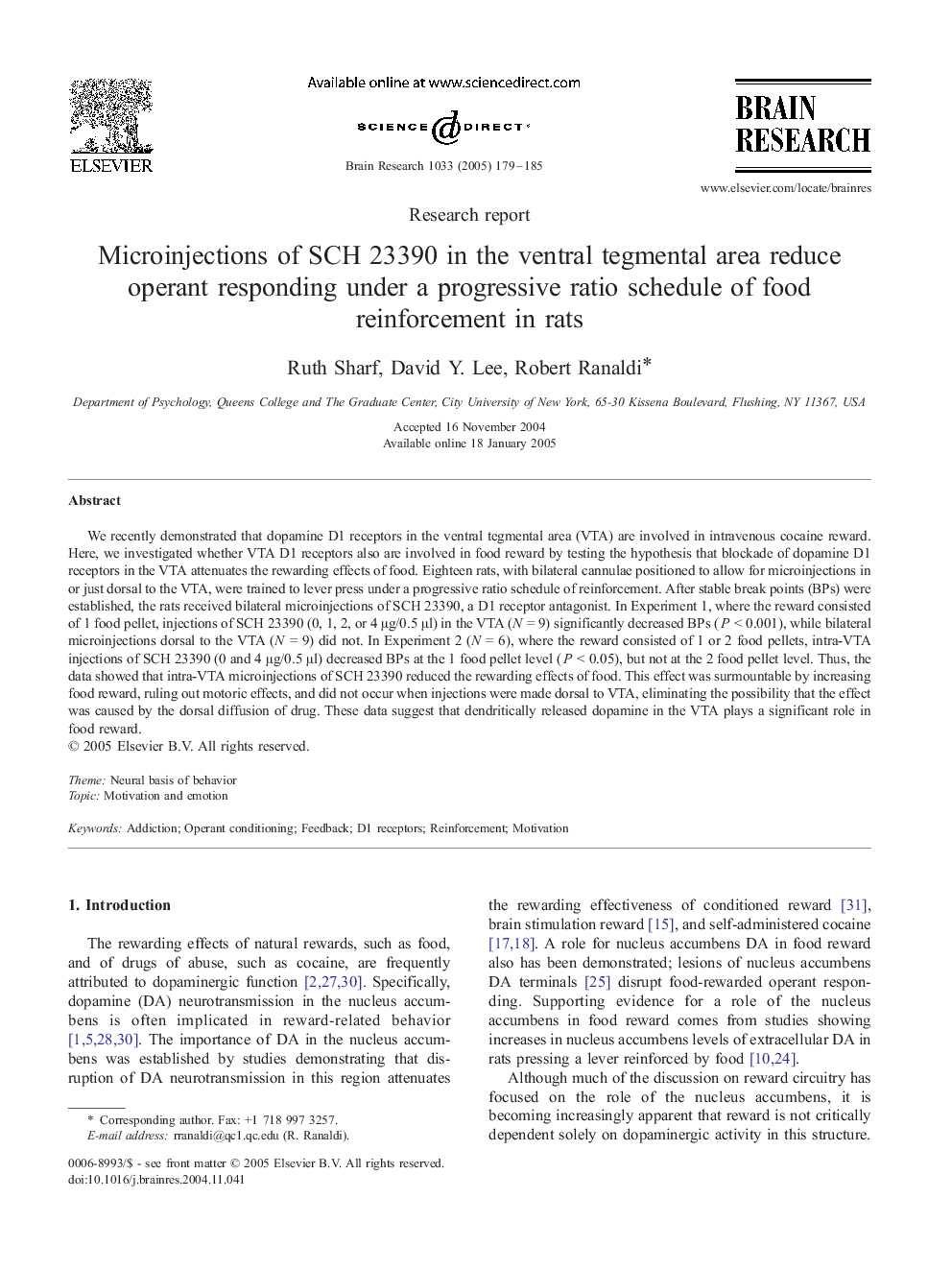| Article ID | Journal | Published Year | Pages | File Type |
|---|---|---|---|---|
| 9416875 | Brain Research | 2005 | 7 Pages |
Abstract
We recently demonstrated that dopamine D1 receptors in the ventral tegmental area (VTA) are involved in intravenous cocaine reward. Here, we investigated whether VTA D1 receptors also are involved in food reward by testing the hypothesis that blockade of dopamine D1 receptors in the VTA attenuates the rewarding effects of food. Eighteen rats, with bilateral cannulae positioned to allow for microinjections in or just dorsal to the VTA, were trained to lever press under a progressive ratio schedule of reinforcement. After stable break points (BPs) were established, the rats received bilateral microinjections of SCH 23390, a D1 receptor antagonist. In Experiment 1, where the reward consisted of 1 food pellet, injections of SCH 23390 (0, 1, 2, or 4 μg/0.5 μl) in the VTA (N = 9) significantly decreased BPs (P < 0.001), while bilateral microinjections dorsal to the VTA (N = 9) did not. In Experiment 2 (N = 6), where the reward consisted of 1 or 2 food pellets, intra-VTA injections of SCH 23390 (0 and 4 μg/0.5 μl) decreased BPs at the 1 food pellet level (P < 0.05), but not at the 2 food pellet level. Thus, the data showed that intra-VTA microinjections of SCH 23390 reduced the rewarding effects of food. This effect was surmountable by increasing food reward, ruling out motoric effects, and did not occur when injections were made dorsal to VTA, eliminating the possibility that the effect was caused by the dorsal diffusion of drug. These data suggest that dendritically released dopamine in the VTA plays a significant role in food reward.
Keywords
Related Topics
Life Sciences
Neuroscience
Neuroscience (General)
Authors
Ruth Sharf, David Y. Lee, Robert Ranaldi,
